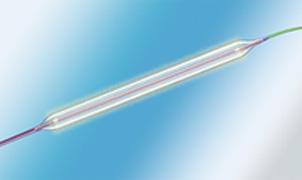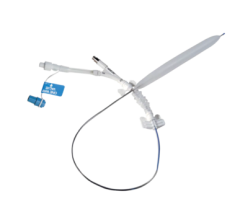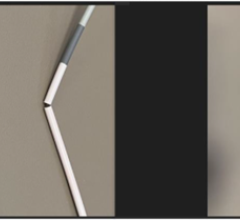
September 29, 2010 – Results from a trial studying the effects of a drug-eluting balloon (DEB) on peripheral artery disease (PAD) were released at the Transcatheter Cardiovascular Therapeutics (TCT) 2010 symposium.
The IN.PACT SFA I trial is investigating the safety and efficacy of Medtronic's Admiral paclitaxel-eluting percutaneous transluminal angioplasty (PTA) balloon catheter in the superficial femoral artery (SFA) compared to treatment with a standard PTA balloon.
“Based on a growing body of clinical data and while results of randomized trials are awaited, IN.PACT drug-eluting balloons show great promise for the treatment of both coronary and peripheral artery disease,” said Bruno Scheller, M.D., professor of internal medicine and cardiology at the University of Saarland in Homburg/Saar, Germany. “The best potential applications appear to be in atherosclerotic leg vessels and for previously stented coronary arteries that have restenosed. Drug-eluting balloons may very well become the fourth therapeutic platform for cardiovascular interventions, joining traditional balloon angioplasty, bare-metal stents and drug-eluting stents.”
The drug-eluting balloons feature a hydrophilic coating called FreePac that frees and separates paclitaxel molecules, facilitating their absorption into the vessel wall to mitigate re-narrowing of the artery over time. The program consists of studies on the treatment of de-novo coronary lesions and coronary in-stent restenosis, as well as below-the-knee (BTK) and superficial femoral artery (SFA) disease.
The IN.PACT Admiral DEB and the IN.PACT Falcon DEB received the CE mark in 2009 and are available in more than 100 countries around the world. They are not available in Canada, Japan and the United States.
For more information: www.medtronic.com


 June 13, 2024
June 13, 2024 









